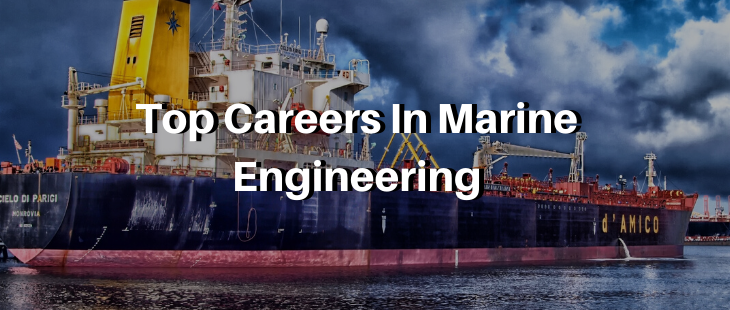
Top Careers In Marine Engineering
- Posted by Fawkes and Reece
- On 22nd April 2017
Considering that 70% of the surface of the Earth is ocean and 90% of worldwide trade is transported by ships, it is clear to see why careers in the marine industry are important and varied. When it comes to engineering careers within the marine industry, there is still significant variation in roles and entry routes.
Marine Engineers
The term ‘Marine Engineer’ covers a wide range of topics. Marine engineers could be involved in the specification and design of a new ship, the build stage, the writing and enforcement of regulations regarding safety and the environment, operating and maintaining vessels at sea and the repairs and refits required over the life of the ship.
Marine engineering careers can take a more management-based route: incorporated and chartered engineers would normally be in charge of projects, managing resources, budgets and timelines. They are likely to have engineering technicians working for them, undertaking the hands-on day-to-day engineering jobs.
Marine engineers have to ensure that vessels are designed and constructed to strict safety and environmental regulations. They also need to be efficient to run and maximise the carriage of cargo (be it gas, bananas or passengers) in order to meet the needs of the operator. Conditions at sea are often tough, and standard equipment used shoreside will normally require marinization to ensure it withstands the conditions it will be subjected to at sea.
Naval Architects
Also considered within the bounds of marine engineering careers is naval architecture. Naval architects are largely involved in the design and build of new vessels, although they also have a role in refits, repairs and surveying engineering jobs.
A naval architect is primarily concerned with the stability and structure of vessels. They will design vessels to withstand the harsh conditions of the sea and the heavy weather that is often encountered. Further to this, they also need to take into consideration the load distribution of cargo and operational equipment and consumables to determine the stability of the ship under varying external conditions. They must ensure that the ship remains safe and upright at sea.
When working as a ship surveyor, a naval architect will be responsible for assessing and documenting the condition of a vessel. The report might be used by a prospective purchaser, Class societies or the owner when planning refit and repair work.
Ocean Engineers
Ocean engineering is another sector of the marine industry. The sector is primarily concerned with the effects of marine vehicles and structures on the marine environment and, conversely, the effects of the marine environment on marine vehicles and structures. It should not be confused with oceanography, which is more concerned with the natural aspects of the oceans.
Ocean engineers act as the link between the natural phenomena of the oceans and man-made vehicles and structures. Moving away from ships, they will be involved in the design of dams and hydroelectric stations and harnessing the power of the oceans with man-made structures.
Whether your interest lies above the ocean or beneath it, in ships or structures, at sea or in the shipyard, a specialist engineering recruitment agency such as Fawkes & Reece can help your career in the marine industry take off.



0 Comments